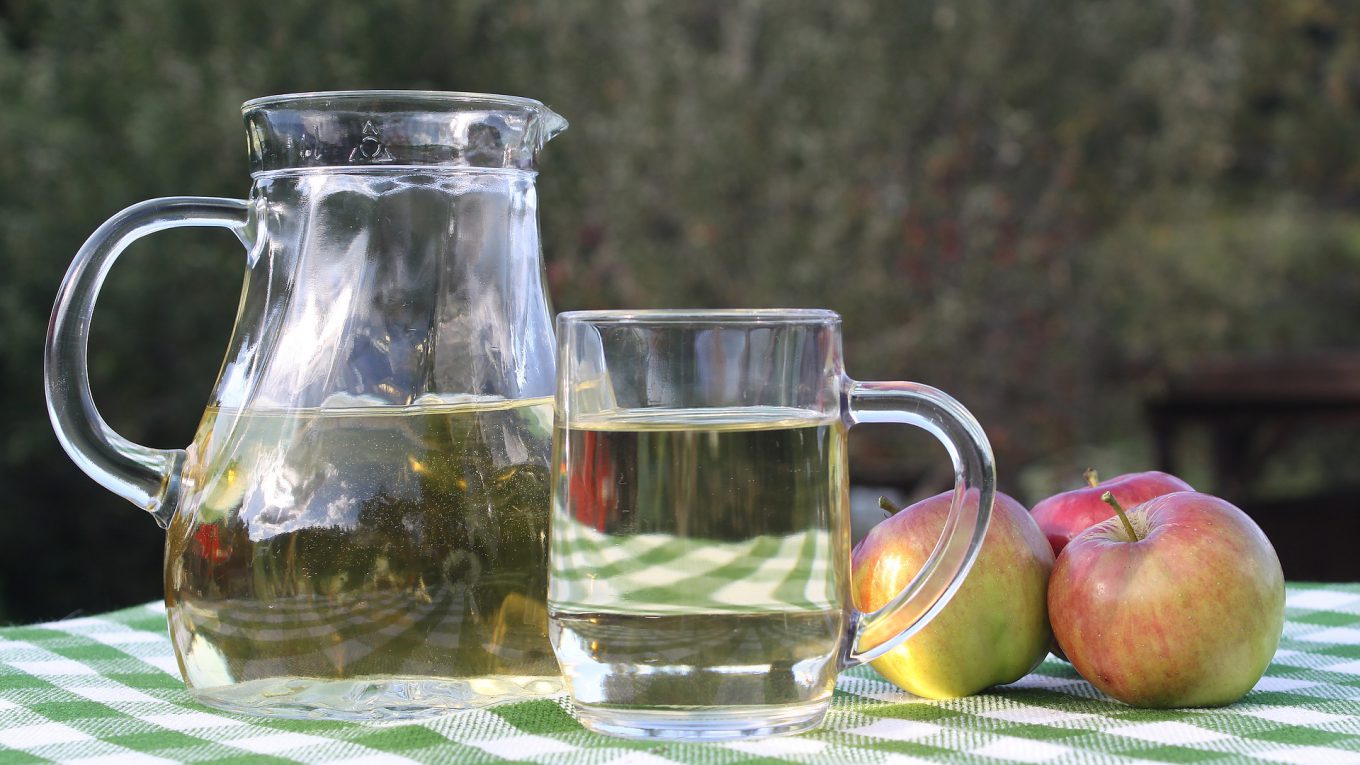Apple Cider Vinegar – can it help with diabetes?
The short answer appears to be yes – but why?
I recently gave a talk about reversing diabetes using a low-carbohydrate dietary approach. One excellent question asked during the talk was whether Apple Cider Vinegar (ACV) is a good thing for people with diabetes? I did not know the answer, so I looked it up.
An apple each day does not keep the doctor away, but ACV might. Apple Cider Vinegar is made by doubly fermenting apples, firstly to alcohol and then on to vinegar. Chemically, it is known as acetic acid. If taken neat its acidic nature can damage teeth and irritate the oesophagus (food pipe). It can however be diluted in water or incorporated into foods. For example, it can be combined with olive oil and various other ingredients to produce vinaigrette which is of course a delicious dressing when added to salads.

Small studies published in reputable journals suggest it may help with a number of medical conditions. For example, it is said to help with acne and some other skin conditions, it may help with acid indigestion and of course, it may help with pre-diabetes and Type-2 Diabetes.
The way it works in diabetes appears to be by improving insulin sensitivity and reducing the amount of sugar that gets taken up into the body during digestion. The main underlying problem in Type-2 diabetes is insulin resistance, a situation where the body stops responding so well to its natural insulin. A consequence of this is that, over time, the body produces more and more insulin to try and overwhelm the resistance. Some authors suggest that ACV may be particularly useful if someone is enjoying a higher-carb meal (pizza, pasta, bread, rice, potato, fruit, and sugary foods for example). It is thought that ACV affects an enzyme in the stomach called amylase. Amylase is the stuff that breaks starch down into its glucose molecules. If the starch remains ‘zipped-up’ because amylase is blocked less glucose will be released and available to be absorbed. ACV may also slow down stomach emptying which would reduce the risk of having a sugar surge during digestion.
So, is it all good news? Well, almost. As already said it is better not to take it neat. Personally, I would prefer to incorporate it into my meal as an ingredient or dressing. For those who take certain medicines for Type-2 Diabetes, there is the risk that if less sugar is absorbed it could lead to low blood-sugar levels; a hypo attack. Some diabetes medicines must be taken alongside a carbohydrate meal or hypo attacks are a real risk.
My current position, for myself, is that I may well start having more vinaigrette dressings with my meals. It helps that I happen to like such dressings anyway. But, I would suggest, it may be an aid to (but not a substitute for) a healthy real-food low-carb diet. Thanks for the question.

